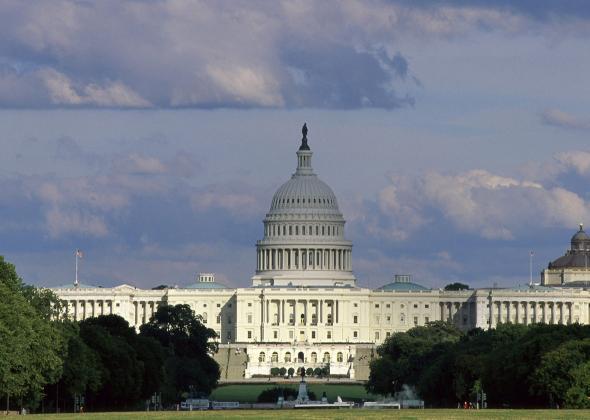
Purestock/Thinkstock
Ahoy! Here’s what has happened with the Senate’s health care/tax cut bill since it was made public last week. (Click that link for a quick overview of the bill itself.)
CBO Score
We haven’t yet gotten a Congressional Budget Office estimate of how many Americans will lose (or choose not to pay for) insurance coverage because of the bill. Politico’s sources guess that the number will be somewhere between 15 million and 22 million. (The House bill’s CBO uninsured estimate is 23 million.) The CBO score is expected to be issued later Monday.
Where Votes Stand
There appears to be actual significant uncertainty as to whether the bill will pass. The insider Axios site reports that a member of Majority Leader Mitch McConnell’s staff “has been telling associates that there’s a 60 percent chance he can pass the bill,” but notes that others in McConnell’s camp “say it’s more like a jump ball.”
No Democrats are planning to vote for the bill, so Republicans need 50 of the 52 members of their caucus to vote “yea” (or “yes” or “OK, fine”) in order to pass it with a tie-breaking vote by Mike Pence. Sens. Rand Paul (Kentucky), Mike Lee (Utah), Ted Cruz (Texas), and Ron Johnson (Wisconson) are currently holding out because they believe the bill doesn’t go far enough to repeal Obamacare; consensus seems to be that Cruz and Johnson will eventually come around but that Paul and Lee might not. Sens. Susan Collins (Maine), Lisa Murkowski (Alaska), Dean Heller (Nevada), Shelley Moore Capito (West Virginia), Rob Portman (Ohio), and Bill Cassidy (Louisiana) are known to be undecided or opposed because the bill’s Medicaid cuts would hurt their rural and/or low-income constituents. (Collins and Murkowski also have concerns about cuts to Planned Parenthood funding.) Conservative-but-unpredictable Nebraska Sen. Ben Sasse also refused to say whether he supports the bill over the weekend.
It’s also possible that all of this is a charade made out of smokescreens and that the bill is going to pass easily once a few buyoffs/tweaks are made.
When They’re Voting
After some rumblings that a vote on the legislation could be held as late as Aug. 1, Senate whip John Cornyn, R-Texas, now says a vote will be held this week. The thinking appears to be that Republicans will suffer less of an immediate political hit for passing the (unpopular) legislation now than they would if weeks of media coverage—and a long Fourth of July recess that members will likely spend in their home states—gave constituents time to get riled up about it. (Democracy!)
(Incidentally, the New Republic has an interesting idea as to how Democrats could take advantage of this short time frame and moderate Republican wobbliness by trying to convince some of the undecided moderates to form a “working group” with centrist Democrats—such as West Virginia’s Joe Manchin and North Dakota’s Heidi Heitkamp—to write an alternative bill. Said group would give members cover in their home states by demonstrating that they were making an earnest reform effort—and the time it would take to write it would also likely run out the clock on the current, more draconian proposal.)
The Resistance
Democrats don’t have a lot of other options as far as #resisting the bill goes, since Republicans plan on passing it through the 50-vote budget reconciliation process. Progressive activists are, however, planning to form a human ring around the Capitol in a Wednesday demonstration that’s intended to, yes, pressure wobbly GOP moderates.
New Stuff in the Bill
The initial draft of the Senate bill eliminated the Obamacare “individual mandate” requiring Americans to purchase insurance but didn’t replace it with any similar measure. Since a functioning insurance market requires healthy and sick individuals to pay in, this would’ve caused the proverbial skyrocketing premiums. So Republicans have amended the bill to include a “lock out” penalty, which incentivizes “continous coverage” by prohibiting individuals who drop their insurance plans (or are dropped from them involuntarily and are temporarily unable to join a new plan) from buying new insurance for six months.
The Takeaway
I am not a highly paid strategy consultant, but it seems to me like penalizing people who lost their insurance and couldn’t afford new coverage is not a winning “look” politically and will not help this bill pass, especially when combined with the incoming CBO score. But then again, I didn’t think Donald Trump would win the election last year. So maybe I can go right to hell!